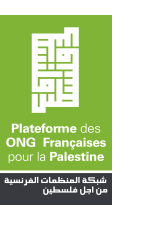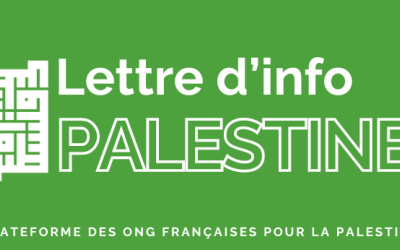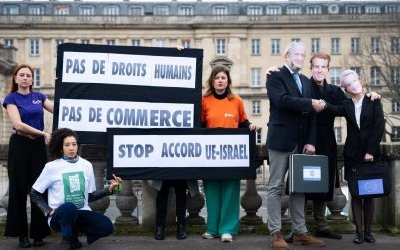


Deux projets humanitaires allemands menacés de destruction par l’armée israélienne - Associated Press
Electricity from solar panels and wind turbines has revolutionized life in rural Palestinian herding communities : Machines, instead of hands, churn goat milk into butter, refrigerators store food that used to spoil and children no longer have to hurry to get their homework done before dark.
But the German-funded project, initiated by Israeli volunteers, is now in danger. Israeli authorities are threatening to demolish the installations in six of the 16 remote West Bank communities being illuminated by alternative energy, arguing the panels and turbines were installed without permits.
The German government has expressed concern and asked for clarifications — a rare show of displeasure from Israel’s staunchest defender in Europe.
The dispute is more than just a diplomatic row. It goes to the core of mounting international criticism of Israel’s policies in the 62 percent of the West Bank that remain under full Israeli control two decades after Palestinians were granted self-rule in a patchwork of territorial islands in the rest of the land.
The division of jurisdictions was meant to be temporary, but has been frozen in place as repeated peace talks deadlocked. The Palestinians claim all the West Bank, along with east Jerusalem and the Gaza Strip, for a state.
null
AP
In this photo taken Wednesday, Feb. 22, 2012,... View Full Caption
International monitors have warned that Israel is suppressing Palestinian development in the West Bank sector under its full control, known as « Area C, » while giving preferential treatment to Israeli settlements. Most of the international community considers Israel’s settlements in the West Bank illegal.
Israel’s more than 300,000 settlers are already double the number of Palestinians in Area C, which would form the heart of any Palestinian state.
If Israel’s policies are not stopped, « the establishment of a viable Palestinian state ... seems more remote than ever, » European Union diplomats warned in an internal report last year.
Israeli government spokesman Mark Regev said the division of authorities was agreed to by the Palestinians in the interim deals of the mid-1990s, and that Israel is ready to move forward.
« We of course want to continue with the negotiations, to reach further agreements with the Palestinians, but they have not been willing to do so, » he said.
The Palestinians have said they won’t resume talks without a freeze in settlement building, which they argue grabs lands they want for a state.
More than 90 percent of the West Bank’s Palestinians live in the self-rule areas run by Prime Minister Salam Fayyad. The economist has won international praise for building institutions of a state like police and courts in the areas he governs. Fayyad has tried to branch out into Area C, but hit a wall of Israeli rejections.
Palestinian government spokesman Ghassan Khatib said the donors are increasingly aware of the problem, but that « unfortunately, there isn’t yet action, such as holding Israel accountable. »
Perhaps the most vulnerable Palestinians in Area C are the goat and sheep herding families scraping a living from barren hills of the West Bank. Israel does not recognize their tiny communities, saying the herders are in the area illegally. Residents say their roots go back generations.
– http://abcnews.go.com/International...
Articles associés
 18 avril 2024
18 avril 2024Hôpital Al-Shifa, ventes militaires françaises et demande de cessez-le-feu Analyses politiques et géopolitiques Colonisation Eau Bande de Gaza Développement UE/Israël Politique française Jérusalem Autorité palestinienne Nations unies Torture et mauvais traitements Agriculture Etat de Palestine Droit international Solidarité internationale Enfance/jeunesse Histoire/analyse politique Santé Prisonniers palestiniens Vallée du Jourdain Destructions Aide internationale La question palestinienne en France Société (Palestine/Israël) Occupation/annexion Hamas Société civile Crime de guerre UE/Palestine Liberté d’expression Armement Violence des colons Climat/environnement Apartheid Guerre
 11 mars 2024
11 mars 2024Gaza : famine, trêve, médias français La question palestinienne en France Torture et mauvais traitements Cour Pénale Internationale Histoire/analyse politique Société (Palestine/Israël) Solidarité internationale Analyses politiques et géopolitiques Défenseur.e des droits de l’Homme Réfugiés palestiniens Liberté d’expression Autorité palestinienne Produits des colonies Droit international Aide internationale Occupation/annexion Violence des colons Politique française Hamas Jérusalem UE/Israël Colonisation Destructions Apartheid Bande de Gaza
Campagne en cours
Dernières publications
 23 juillet 2024
La CIJ estime que l’occupation du territoire palestinien par Israël est illégale
Occupation/annexion
23 juillet 2024
La CIJ estime que l’occupation du territoire palestinien par Israël est illégale
Occupation/annexion
 31 mai 2024
Européennes : quels engagements des candidats pour la Palestine ?
La question palestinienne en France
UE/Palestine
31 mai 2024
Européennes : quels engagements des candidats pour la Palestine ?
La question palestinienne en France
UE/Palestine
> Toutes les publications











